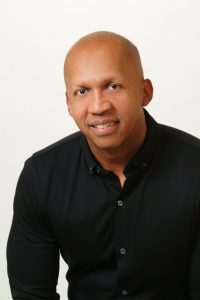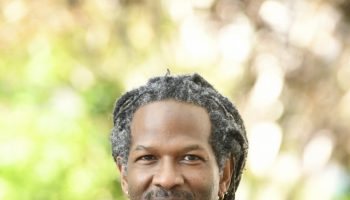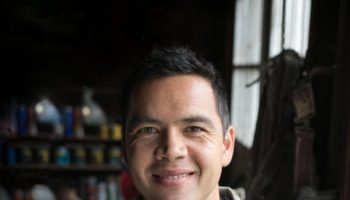As founder and executive director of the Equal Justice Initiative, Bryan Stevenson and his colleagues have fought to reform Alabama’s criminal justice system since 1989 by targeting racial discrimination.

But Stevenson, author of Just Mercy said there is much work to be done.
“I think that the despair and the hopelessness that you see in many poor minority communities … constrains the opportunities for black and brown people, no matter how much education they get, no matter how much wealth they acquire,” Stevenson told the Milwaukee Journal Sentinel. “ … We are not free. And this nation has not met its obligations to equity and justice, and so in that respect, we all — black, white, brown, other — have an obligation to do more and do better.”
At 2 p.m. Monday, Aug. 13, in the Hall of Philosophy, Stevenson will emphasize the need to “do better” in his lecture, “Honoring Dr. King’s Legacy: What Should We Have Learned in the Past, but Have Not Yet, to Our Peril?” Stevenson’s lecture is part of the Week Eight interfaith theme, “Not to be Forgotten: A Rememberance on Dr. Martin Luther King Jr.”
A recipient of 29 honorary doctoral degrees and member of Fortune’s 2016 and 2017 World’s Greatest Leaders list, Stevenson has studied, taught and led in the fight against racial discrimination. He has cited King as a voice behind his activism.
“Dr. Martin Luther King said injustice anywhere is a threat to justice everywhere,” he said in an interview with the Journal Sentinel. “We obviously don’t believe that in America, because we’ve tolerated a lot of injustice in our criminal justice system.”
Stevenson frequently comments on current social issues, and has worked with the Black Lives Matter movement and served on former President Barack Obama’s task force on 21st Century Policing.
In recent years, Stevenson and the EJI have fought against death penalties in Alabama. In January, the EJI fought the U.S. Supreme Court and blocked the execution of Alabama man Vernon Madison. Stevenson said the process of debunking capital punishment cases is multifaceted.
“It’s just intensive case-by-case litigation,” he told The New Yorker. “We’ve gone more aggressively than anyone in the country on racial bias against African-Americans in jury selection. We have extensive litigation on the lethal-injection protocols. We identify inadmissible evidence. We push hard on every issue.”
In addition to fighting current cases, Stevenson said it is imperative to recognize the roots of injustice that are buried deep in American history.
“Our society applies a presumption of dangerousness and guilt to young black men, and that’s what leads to wrongful arrests and wrongful convictions and wrongful death sentences, not just wrongful shootings,” he told The New Yorker. “There’s no question that we have a long history of seeing people through this lens of racial difference. It’s a direct line from slavery to the treatment of black suspects today, and we need to acknowledge the shamefulness of that history.”
Having dedicated years to EJI — which recently opened The Legacy Museum: From Enslavement to Mass Incarceration in Montgomery, Alabama — while working as a professor at New York University School of Law, Stevenson constantly acts as a leader.
Though much of his career has been in the public sphere, he said he believes real change happens in uncomfortable circumstances.
“I’ve never seen justice prevail where people only did things that are convenient and comfortable,” he told the Journal Sentinel. “…Most of us have been taught that if there’s a bad section of town, if there’s a part of town where the schools aren’t doing very well, or there’s parts of towns where there’s a lot of drug addiction, abuse or neglect to stay as far away as possible. I say do the opposite. If you want to change the world you have to get as close as possible to the areas that are suffering so you can work to change it.”




